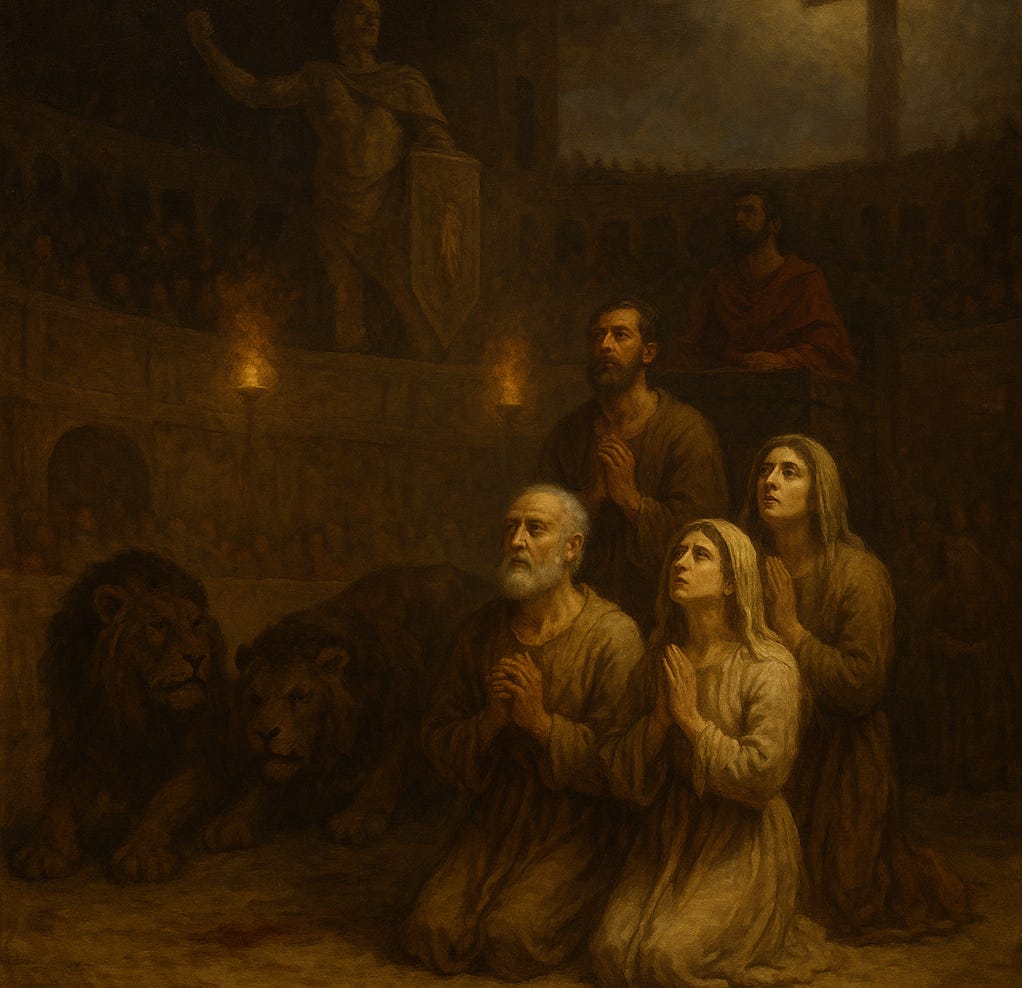Walking Wisely in October: Part Three
A Mini-series, Walking Wisely in October: Part Three
What Concord Hath Christ with Belial?
“What concord hath Christ with Belial? or what part hath he that believeth with an infidel?” (2 Corinthians 6:15).
There are certain questions that take the breath out of you. This is one of them. It jars, striking the conscience. The Spirit is pressing the Corinthians with these questions, “Are you still trying to confess the name of Christ while holding a place for Belial in your heart?”
The contrast is so great, it borders on absurdity. How could it ever be, the Prince of Peace sitting beside the lord of the flies, the Holy One of Israel in fellowship with the spirit of darkness? How could the child of God, saved to the uttermost, bought with blood, be in willful partnership with heaven’s rebel?
The Corinthians had not forsaken Christ. But they hadn’t yet clearly seen the horror of muddying what God had made clean.
A Disguised Table and a Cup Without Warning
Modern Christianity sips from two cups. So does my own heart, at times. We sip the name of Jesus with the lips of assembly on the Lord’s Day, then sample the world’s offerings during the week. What is it in our fallen nature that makes us so easily tempted by this present darkness?
When it comes to Halloween, no, there are no skeletons in our front yard, but there may be a few in our closet. As I said before, we explain such a day away as harmless fun. Or we try to redeem the culture by dressing up as Christian saints. Then we feel justified in our conscience. We call it an American tradition, except it only became mainstream in the 1950’s. We say it’s seasonal, so as to blame Halloween on the earths rotation. We hand the children their bags or pillowcases and tell ourselves we are not joining in on the “sin part” of the evening. Really? Test that theory?
But Paul asks in essence, “What fellowship is there between paganism and true religion?” What creative verbal gymnastics will we use to justify partaking in an event originating in Wiccanism (Druid witchcraft)?
The early church, who faced this evil at the edge of the sword, knew the answer to Paul’s question. They would not sprinkle a pinch of incense before Caesar’s image, though it cost them their very lives (Read Eusebius’ The Ecclesiastical History). A single pinch, they were told, was all it would take, no actual worship, no confession of loyalty, just one token act to keep the peace. But the Christians refused. To them, that pinch was betrayal. To bow the knee in act was to bow the heart in truth.
They were dragged into arenas, torn by beasts, mocked by crowds, and burned alive. All because they knew there could be no concord between Christ and idols. Theirs was a holy jealousy for the Lord who had bought them with His own blood. Better the sword, they reasoned, than the stain of compromise.
And yet today, many Christians sprinkle their homes with garlands of darkness and say it doesn’t really mean anything. We excuse it as cultural tradition, forgetting that Satan never asks for much at first, only a pinch.
Stains Upon the Garments of the Saints
The problem is not that the world celebrates darkness. We expect that. Sin loves the dark (John 3:19). The problem is when those called children of light, cover that light under a bushel (Matthew 5:14–16).
“But Pastor, there is no commandment that forbids this. There is no verse that binds the conscience with a law about candy and costumes.” But there is, as ancient as holy:
“Be ye separate... touch not the unclean thing” (2 Corinthians 6:17). Not every part of the city of man is sinful. But some things are obviously unclean.
These words come from the voice of a jealous Bridegroom over His bride. The one who said, “Ye shall be holy, for I am holy” (1 Peter 1:16). Our Lord has not lowered His standard with the turning of the cultural tide, dear one.
The question is not whether we mean ill or harm. It is whether we have stopped to ask what pleases our precious Savior (Ephesians 5:10).
Love Is a Narrow Road
Christ never said, “Follow me and blend in.” He said, “Whosoever will save his life shall lose it: and whosoever will lose his life for my sake shall find it” (Matthew 16:25). He said, “If any man will come after me, let him deny himself, and take up his cross daily, and follow me” (Luke 9:23). And He said, “Because ye are not of the world, but I have chosen you out of the world, therefore the world hateth you” (John 15:19).
To follow Him is to walk with Him through a world that no longer feels like home, “For here have we no continuing city, but we seek one to come” (Hebrews 13:14).
If we love Christ, we learn to love what He loves. And if we do, the polish of Halloween tarnishes. The temporal joy around darkness begins to sour the heart. We grieve over what once amused us, and we live, contra mundum, “against the world.” Not out of pride or with finger-pointing criticism at those who do not know better, but with a life that answers, from the heart, Paul’s question.
What agreement does Christ have with Belial, dear one? The believer knows the answer, there is no harmony in that duet. One is the living Word, the brightness of the Father (Hebrews 1:3). The other is the ruin of humanity, the memory of paradise lost (Genesis 3:24).
To keep company with Christ is to live as children of the day, not the night (1 Thessalonians 5:5). To keep company with Belial is to walk in darkness, even for just an evening (Ephesians 5:11).



